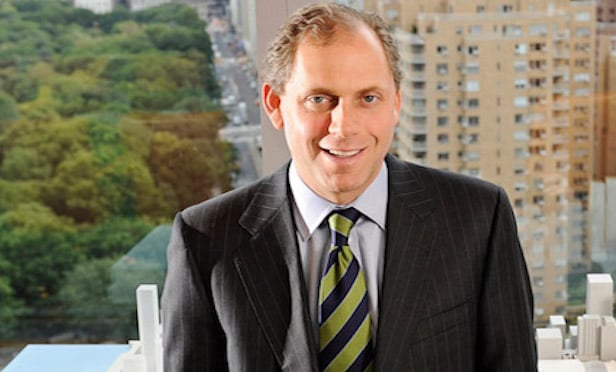WASHINGTON, DC–One common observation in the last twenty-four hours is president-elect Donald Trump did not provide much in the way of policy proposals while on the campaign trail. This is not to say he didn't have his signature issues — he did — or that he did not lay out what he would do in his first 100 days in office. He did.
It is the details that people are craving to know more about as well as how he plans to execute on them.
His Cabinet appointments will be telling. For example, various media outlets have reported that Steven Mnuchin, a former banker at Goldman Sachs, is under serious consideration for nomination as secretary of the US Treasury Department. Mnuchin headed mortgage trading before leaving the bank.
What also will be telling will be his reaction to policy proposals by Republicans in Congress. For example, some House Republicans are hoping to present an alternate plan to Trump's proposed US-Mexico border wall, according to Reuters. Building the wall was his signature — and very controversial — issue. Trump promised Mexico would pay for it; Mexico has repeatedly said it would not. Is he amendable to a compromise on this?
From a commercial real estate standpoint the biggest questions will be who will fill the positions in his cabinet and who will be his political appointees, John Kevill, a principal at Avison Young and Managing Director for US Capital Markets tells GlobeSt.com. “Who will they be, how quickly can he fill them–that will tell us a lot.”
The latter is particularly important because Trump does not have the contacts in Washington establishment that a seasoned politician might. He also is reportedly making his transition team pledge not to lobby the government while he is in office, which is making that team hard to fill as well.
Such headwinds will be overcome, of course. Then, once those elements are in place — who are his people and how he will get along with a Republican Congress – the answers to other important questions will start to become somewhat more clear.
In no particular order, the CRE community needs to know:
The budget for the next fiscal year. It is one of the matters left to address by Congress when it returns to Washington DC. One initiative, the EB-5 program, could expire without new action.
How he plans to unwind the Affordable Care Act. There is little doubt Trump will move to repeal it and with a Republican Congress he should receive a bill on his desk in short order. Healthcare real estate companies have invested considerably in the premise underlying the Affordable Care Act, aka Obamacare, which is a focus on prevention.
His plans for comprehensive tax reform. Republicans are already tackling this. Rep. Kevin Brady, chairman of the House Ways and Means Committee, says staffers are already working on a proposal to overhaul the tax code that they expect to advance within the first 100 days. Trump has discussed his plans for tax reform on the campaign trail but whether his preference is to address the issues measure by measure or wait for an entire integrated policy bill from Congress remains to be seen. REITs could see some of their tax advantages curtailed under such as scheme as everything will be on the table.
When does the regulatory scale-back begin? And where? Trump has promised to peel back regulatory reform and implement a new rule that for every regulation proposed and implemented, two must be eliminated. Dodd-Frank will be on the chopping block although it is unlikely it will be repealed as Senate Democrats will block such attempts. But targeted cuts will surely be made. Trump did not discuss exactly which financial regulations will be overhauled; the best guess would be those impacting small banks.
His energy policy. Many expect that as president, Trump will approve the controversial Keystone XL pipeline. He is also less than enthusiastic about alternative energy such as solar power and has said in the past that climate change was a hoax. What will this mean for green building initiatives such as those under USGBC and other non-profits? Will the market value LEED and other certified buildings as much as it does now?
Will he really freeze federal workforce hiring? Trump proposed a freeze on all federal hiring as part of his campaign to root out corruption. How will he implement and execute his policies without the human capital infrastructure of a vibrant federal government workforce?
And for Washington DC's commercial real estate market in particular, what will that mean for the federal government's footprint under a Trump Administration?
Bill Collins of Cushman and Wakefield is bullish in that respect. “When a political party has the presidency and Congress it is generally good for the local economy and CRE,” he told GlobeSt.com. “The federal government, particularly as it related to defense, cyber security and life sciences, will continue to grow.”
WASHINGTON, DC–One common observation in the last twenty-four hours is president-elect Donald Trump did not provide much in the way of policy proposals while on the campaign trail. This is not to say he didn't have his signature issues — he did — or that he did not lay out what he would do in his first 100 days in office. He did.
It is the details that people are craving to know more about as well as how he plans to execute on them.
His Cabinet appointments will be telling. For example, various media outlets have reported that Steven Mnuchin, a former banker at
What also will be telling will be his reaction to policy proposals by Republicans in Congress. For example, some House Republicans are hoping to present an alternate plan to Trump's proposed US-Mexico border wall, according to Reuters. Building the wall was his signature — and very controversial — issue. Trump promised Mexico would pay for it; Mexico has repeatedly said it would not. Is he amendable to a compromise on this?
From a commercial real estate standpoint the biggest questions will be who will fill the positions in his cabinet and who will be his political appointees, John Kevill, a principal at Avison Young and Managing Director for US Capital Markets tells GlobeSt.com. “Who will they be, how quickly can he fill them–that will tell us a lot.”
The latter is particularly important because Trump does not have the contacts in Washington establishment that a seasoned politician might. He also is reportedly making his transition team pledge not to lobby the government while he is in office, which is making that team hard to fill as well.
Such headwinds will be overcome, of course. Then, once those elements are in place — who are his people and how he will get along with a Republican Congress – the answers to other important questions will start to become somewhat more clear.
In no particular order, the CRE community needs to know:
The budget for the next fiscal year. It is one of the matters left to address by Congress when it returns to Washington DC. One initiative, the EB-5 program, could expire without new action.
How he plans to unwind the Affordable Care Act. There is little doubt Trump will move to repeal it and with a Republican Congress he should receive a bill on his desk in short order. Healthcare real estate companies have invested considerably in the premise underlying the Affordable Care Act, aka Obamacare, which is a focus on prevention.
His plans for comprehensive tax reform. Republicans are already tackling this. Rep. Kevin Brady, chairman of the House Ways and Means Committee, says staffers are already working on a proposal to overhaul the tax code that they expect to advance within the first 100 days. Trump has discussed his plans for tax reform on the campaign trail but whether his preference is to address the issues measure by measure or wait for an entire integrated policy bill from Congress remains to be seen. REITs could see some of their tax advantages curtailed under such as scheme as everything will be on the table.
When does the regulatory scale-back begin? And where? Trump has promised to peel back regulatory reform and implement a new rule that for every regulation proposed and implemented, two must be eliminated. Dodd-Frank will be on the chopping block although it is unlikely it will be repealed as Senate Democrats will block such attempts. But targeted cuts will surely be made. Trump did not discuss exactly which financial regulations will be overhauled; the best guess would be those impacting small banks.
His energy policy. Many expect that as president, Trump will approve the controversial Keystone XL pipeline. He is also less than enthusiastic about alternative energy such as solar power and has said in the past that climate change was a hoax. What will this mean for green building initiatives such as those under USGBC and other non-profits? Will the market value LEED and other certified buildings as much as it does now?
Will he really freeze federal workforce hiring? Trump proposed a freeze on all federal hiring as part of his campaign to root out corruption. How will he implement and execute his policies without the human capital infrastructure of a vibrant federal government workforce?
And for Washington DC's commercial real estate market in particular, what will that mean for the federal government's footprint under a Trump Administration?
Bill Collins of Cushman and Wakefield is bullish in that respect. “When a political party has the presidency and Congress it is generally good for the local economy and CRE,” he told GlobeSt.com. “The federal government, particularly as it related to defense, cyber security and life sciences, will continue to grow.”
Want to continue reading?
Become a Free ALM Digital Reader.
Once you are an ALM Digital Member, you’ll receive:
- Breaking commercial real estate news and analysis, on-site and via our newsletters and custom alerts
- Educational webcasts, white papers, and ebooks from industry thought leaders
- Critical coverage of the property casualty insurance and financial advisory markets on our other ALM sites, PropertyCasualty360 and ThinkAdvisor
Already have an account? Sign In Now
*May exclude premium content© 2024 ALM Global, LLC, All Rights Reserved. Request academic re-use from www.copyright.com. All other uses, submit a request to [email protected]. For more information visit Asset & Logo Licensing.








